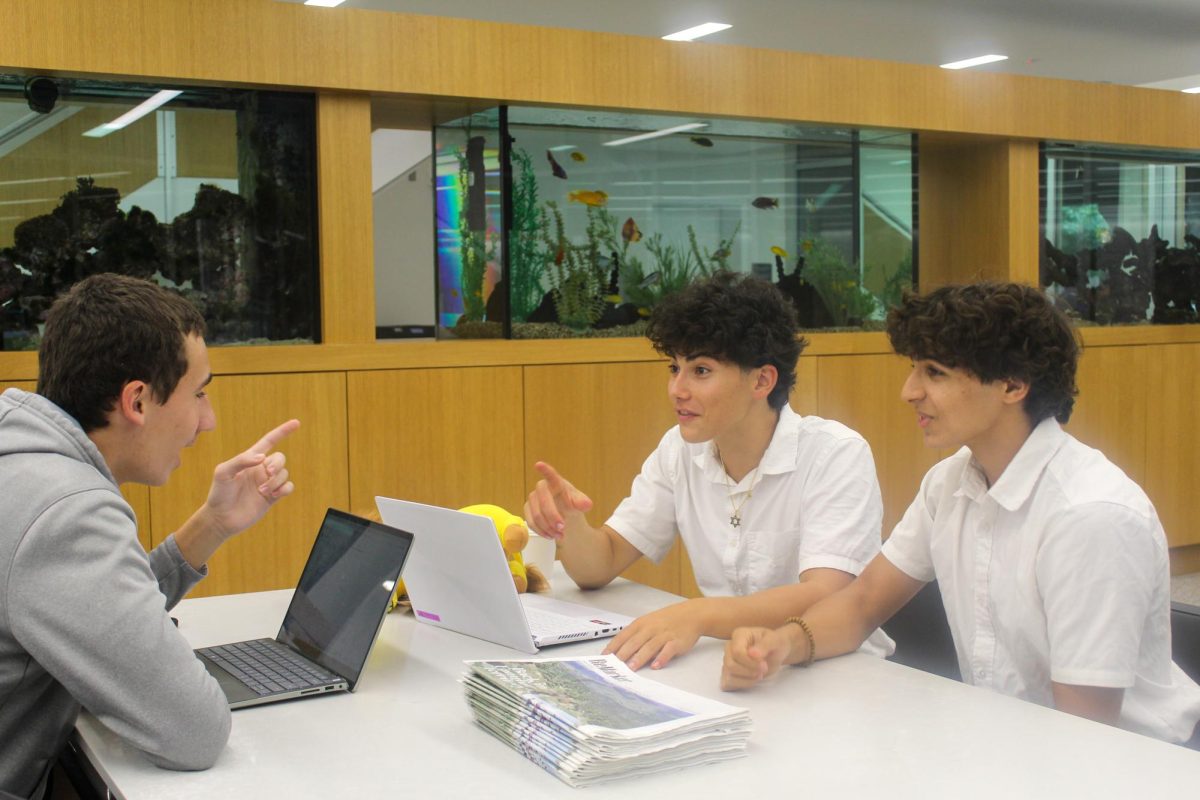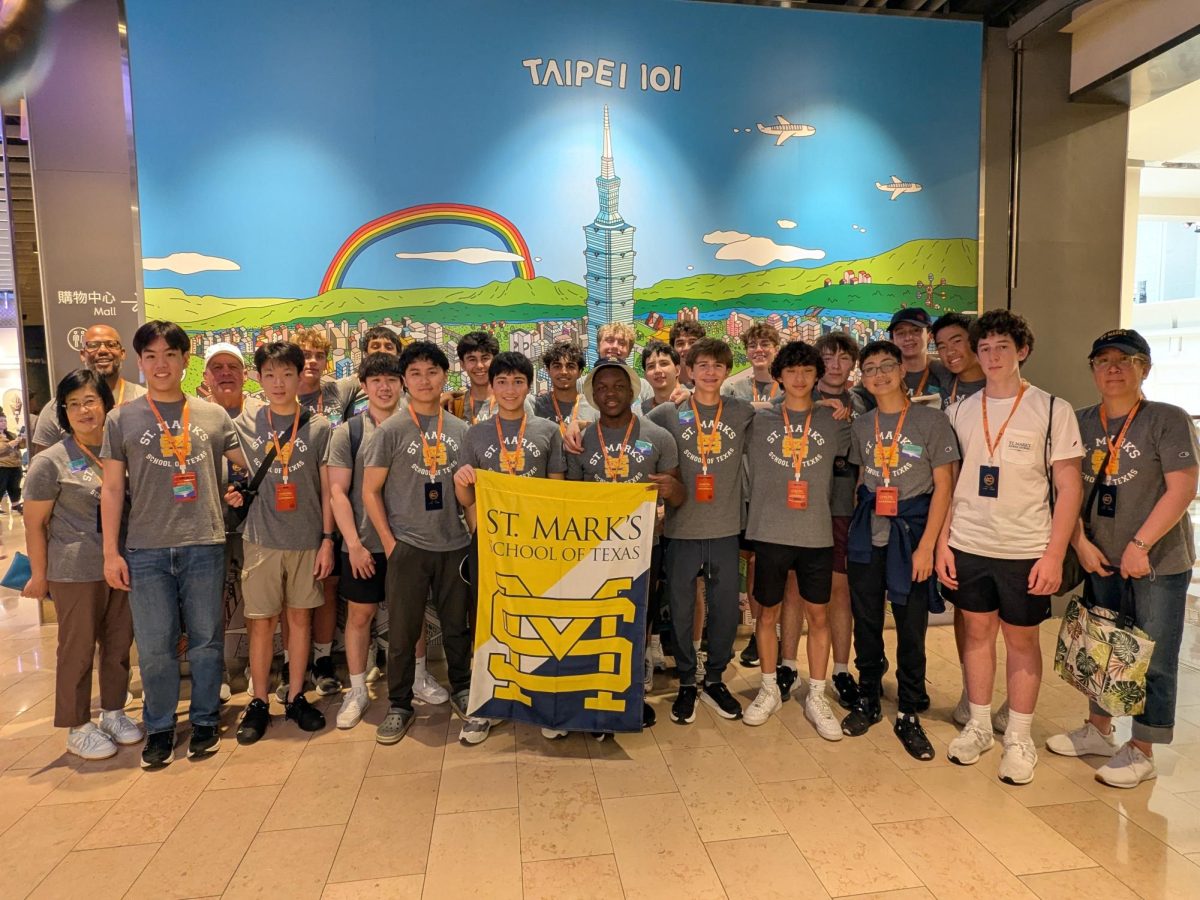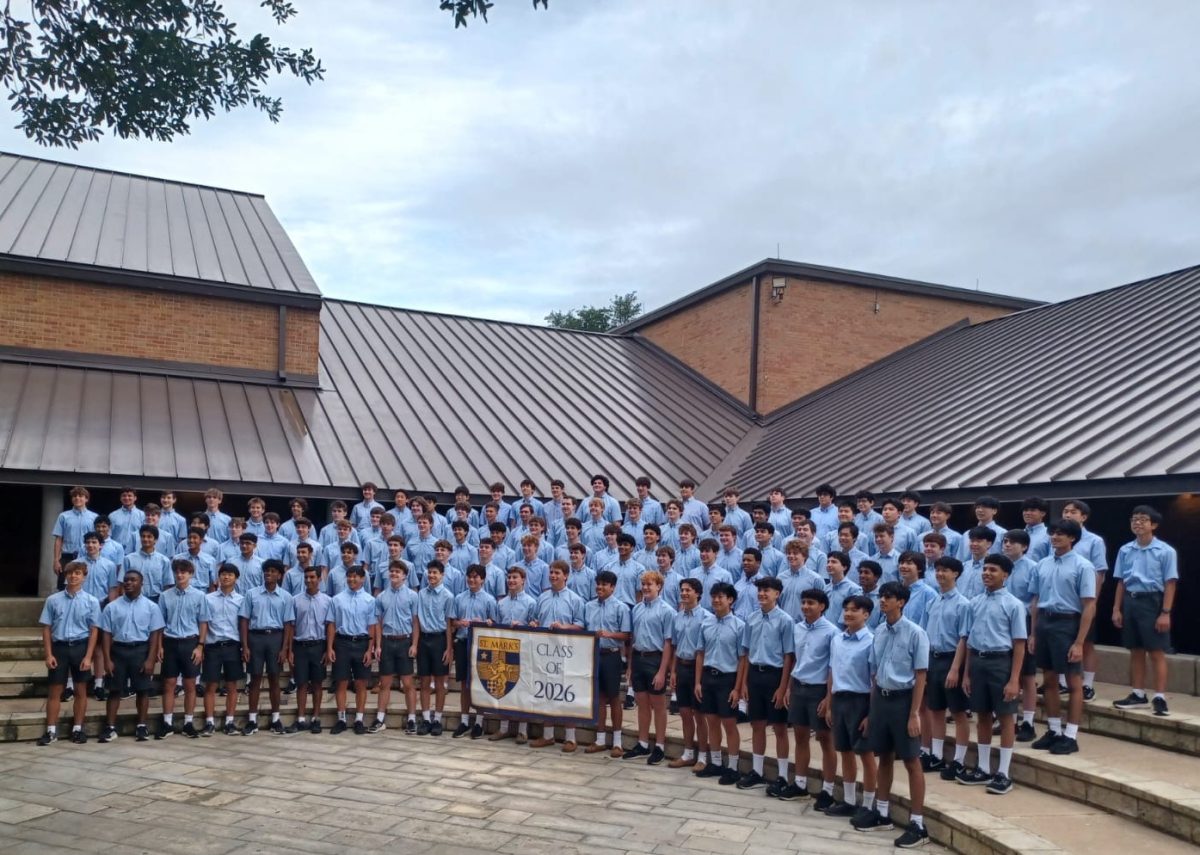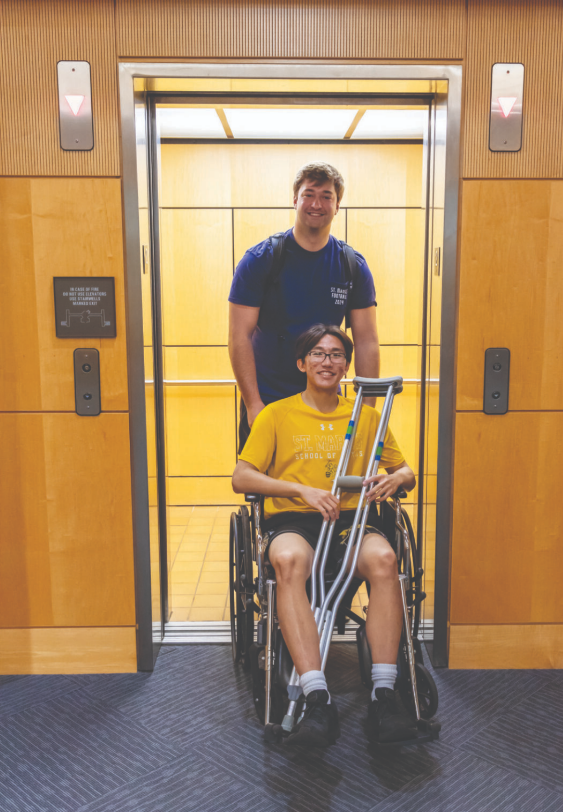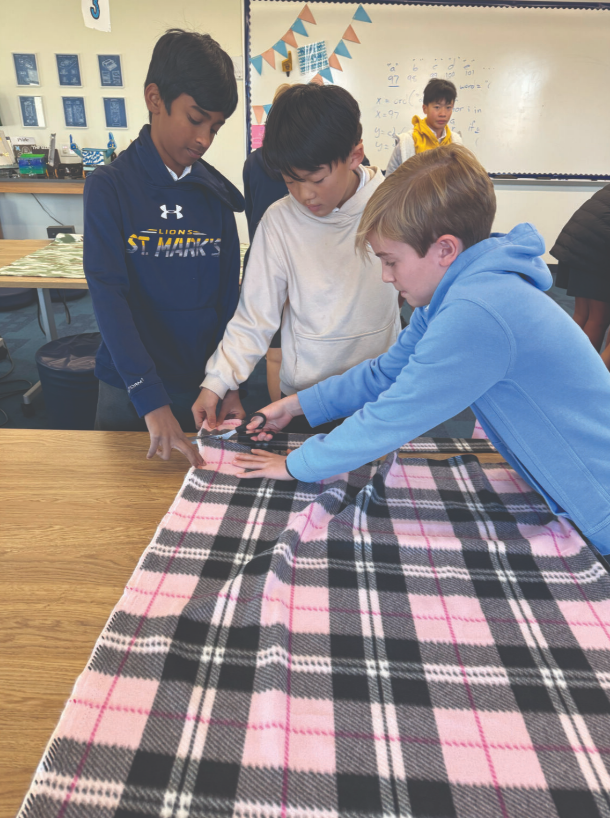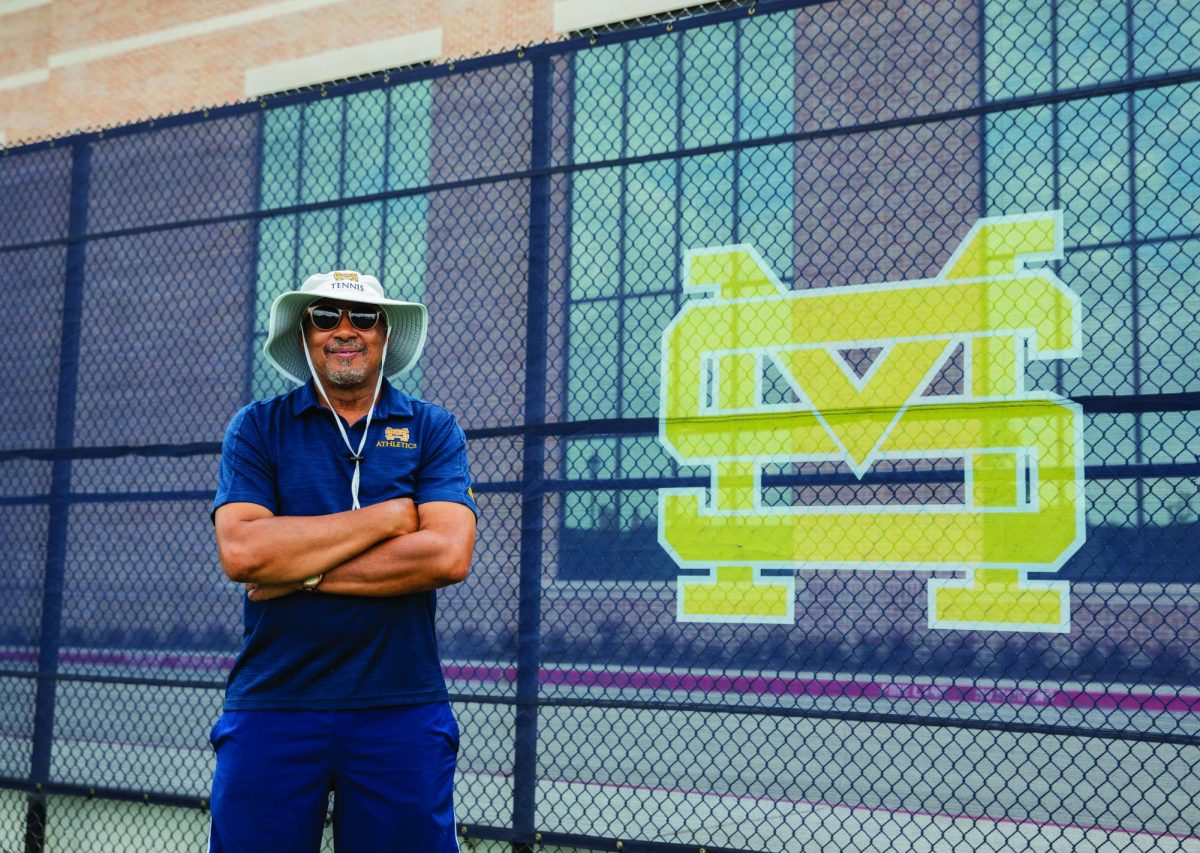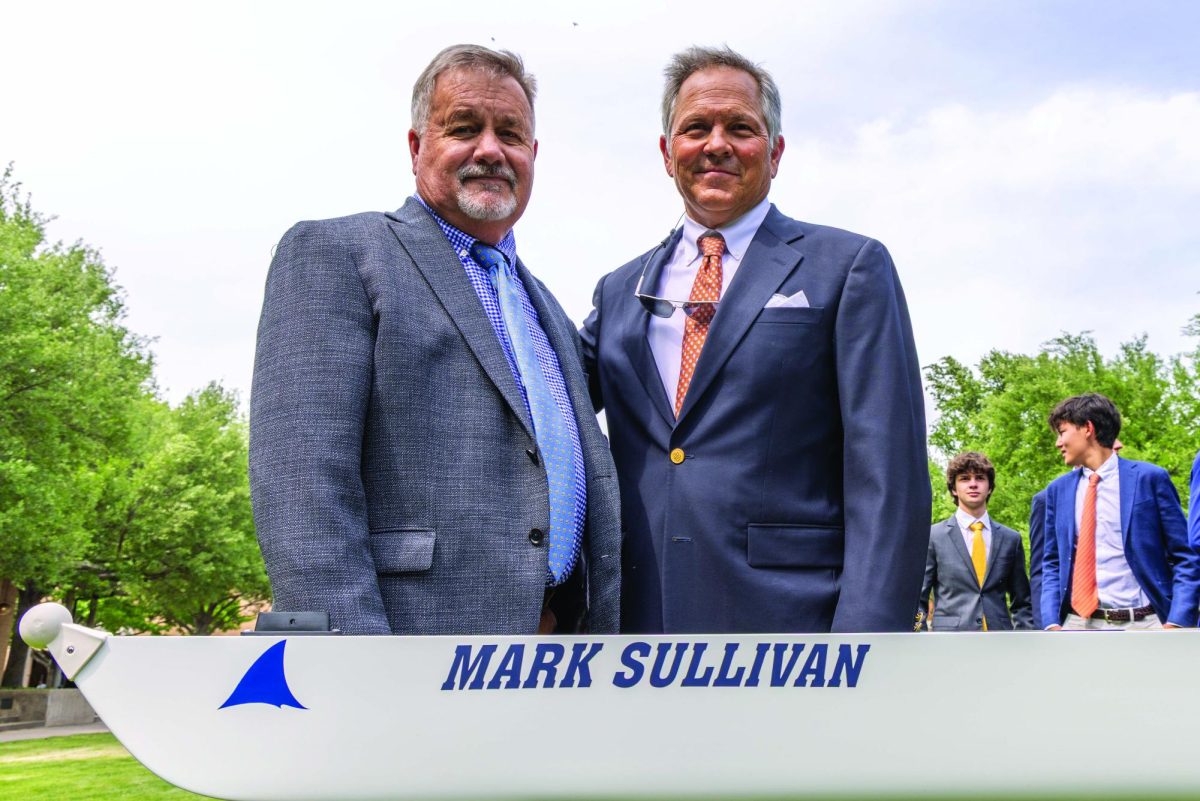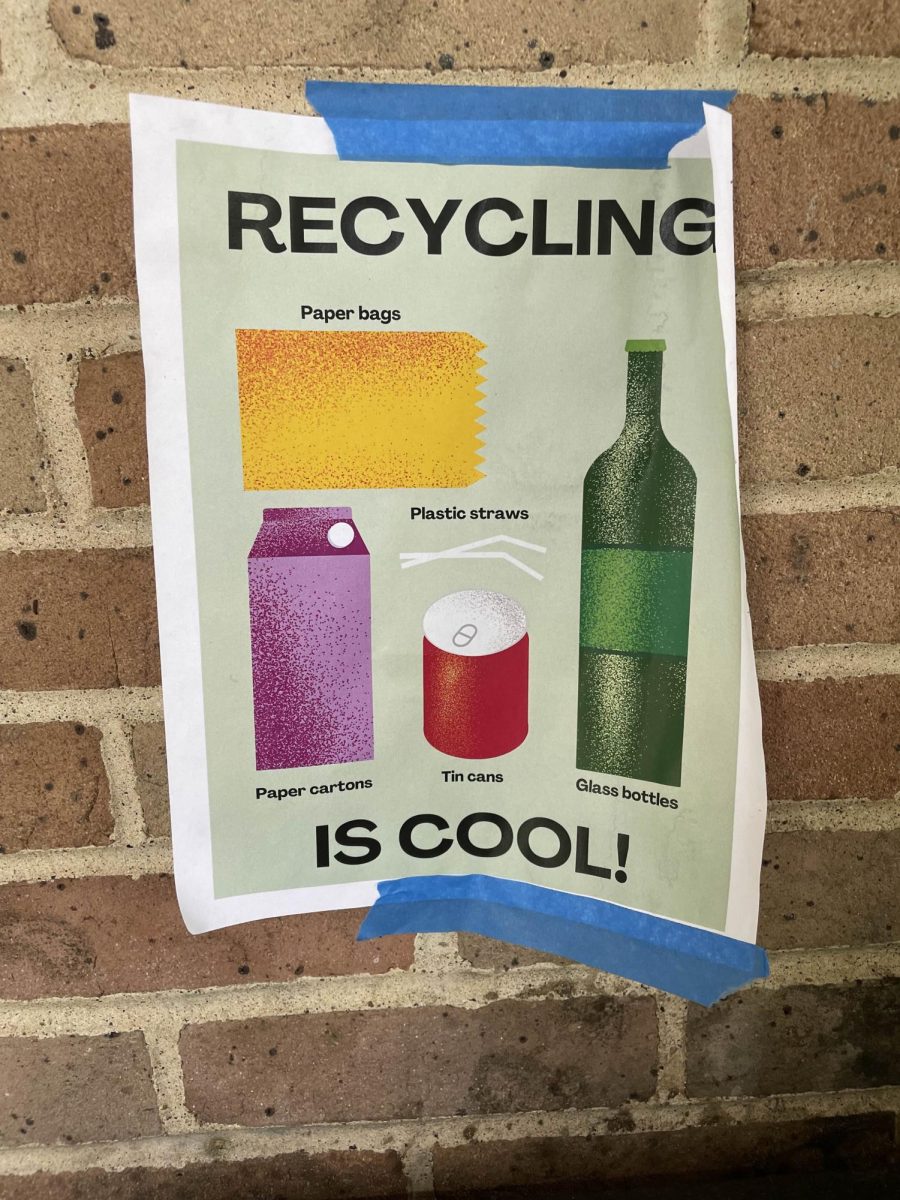It is now possible to construct an English sentence that would leave someone a few years ago wondering if you were speaking Russian or Chinese.
Or perhaps it was Japanese? Ancient Greek?
In 2023, Merriam-Webster added 690 words to its collection of over 470,000 — many of which had not been uttered by a single soul five, 10, or 15 years ago — words like rizz, jawn and goated.
While each word has its own origin story, whether that be social media, video games or some other facet of internet culture, one thing is for certain: they’ve left many faculty and parents scratching their heads during classroom discussion or at the dinner table. In February, the “New York Times” even published a guide detailing the proper usage and practical applications of a handful of these terms.
The ability to effortlessly gather information and consume media coupled with the influx of new-age slang has led some to believe students are becoming more casual in learning environments, which has a multitude of effects, good and bad.
Today, even Marksmen themselves may question their sanity at the lunch table or in passing conversation.
As a result, some believe this phenomenon to be a natural side effect associated with the rise and fall of generations. Others view the shift as inappropriate to the English language. And others still might see this as yet another case of “kids these days.”
For better or worse.
For English Instructor Scott Gonzalez, the nature of casual vernacular has certainly changed in the past few decades, recently developing a more temporary lifespan than in the past.
“Slang was fairly limited back then,” Gonzalez said. “That’s because it would catch on and usually stay for longer, compared to today. I don’t think it spread like it does now on social media.”
Indeed, much of the slang popularized in recent years has originated from entertainment platforms. One of the most well-known instances of this is the word “rizz,” a shortened form of “charisma” which was conceived by Twitch streamer Kai Cenat and further popularized on other social media platforms. However, this was by no means the first instance of a term suddenly skyrocketing in popularity due to social media.
“Five years ago students would say, ‘this Chipotle burrito is gas,’ but you don’t really hear that much anymore,” English instructor Cameron Hillier ‘13 said. “One of my favorites some years ago was when something ‘hits different.’ I think that’s hilarious, but I don’t really hear that one much anymore.”
Senior Adam Kappelman has also experienced this phenomenon throughout high school.
“Words like these have always been there, they’ve just been different,” Kappelman said. “You have the ‘poggers’ era. People would say ‘That’s so pogchamp!’ all the time. Then you had the ‘OK, boomer’ era, among others. There’s numerous terms like these. Everything evolved from Twitch streams, and then platforms like TikTok and YouTube caught on to them too.”
While it is natural for new words to periodically appear in vernacular English, they are typically expected to be excluded from use in a formal context. However, what makes this most recent surge in popular language so impactful is how entrenched in its users’ vocabularies it has become. According to Dr. Danny Law, an Associate Professor of Linguistics at the University of Texas at Austin, this usage of unfamiliar vocabulary can cause a disconnect between different groups of people.
“If I want to use my language to have a particular effect on you, I have to understand how you’re understanding my language and how my language is affecting you,” Law said. “So part of the skill people need is learning to adapt their language use to different audiences to have different effects.”
However, a common grievance in recent years is that this skill of language filtration is rapidly deteriorating among us as a society, Marksmen included.
“Inappropriate words like cuss words are becoming more normalized to the point where they’re just another word,” Hillier said. “I would say that [cursing] has shifted to younger years and is generally more accepted as okay speech. Students will say things in the classroom that make me think, ‘Man, I would have never said that when I was in school.’”
Albeit, there’s a proper time and place for everything. According to Victor F. White Master Teaching Chair in English David Brown, these words have a place in an academic context; their merit lies in their shock value, in their inappropriateness itself.
“We have become much more lenient with what used to be called obscenities, profanity, and vulgarities,” Brown said. “But I’m not as much of a stickler for that. I think that profanity has its place, even in polite society. There are times when a forceful word that carries more impact because of its shock value is sometimes warranted.”
This debate about the nature of the English language really is nothing new, though. Generations upon generations of individuals have worried about their children losing the language’s complexities, yet it remains resilient over and over again despite the smaller evolutions associated with the passage of time.
“People in the 1800s also complained about how the rising generation was losing the formality of language and the nuance of expression,” Law said. “That’s not really what was happening. What was actually happening was that younger people weren’t using the same nuances of expression and meaning that the older people were using. They were using other kinds of nuances that those older people were missing.”
The increasing informality of language in society is one thing, but many draw the line at adding these words to the dictionary, which serves as a representation of the current state of the English language and an indication that these terms are here to stay. Indeed, according to Law, it is rare for words used almost exclusively in spoken English to even be considered for publication.
“Most dictionaries base [adding words] off of things that get published in print,” Law said. “That’s different from just thinking about a word that’s part of the spoken language in a community because, even though there might be a lot of people using a particular word, nobody has actually written it down in a traditional publication, like a newspaper or a book.”
Gonzalez has witnessed this heated debate firsthand, when a word still held in contention today was first included.
“Maybe 50 years ago, they added ‘ain’t’ to the dictionary, and there was a big uproar about it,” Gonzalez said. “At first I thought maybe it shouldn’t be there, but it was used so much that it became common language.”
But according to Kappelman, Merriam-Webster made the right decision. The addition of new words to the dictionary carries is more than a surface-level decision.
“I think adding these words to the dictionary is a step in the proper direction, and I think that Merriam-Webster should continue incorporating more words,” Kappelman said. “Words like ‘skibidi’ are used just as much and have become a movement of their own. The Grimace Shake isn’t just a milkshake, it’s an idea. It represents the concept of illness in a society that people really fear.”
On the contrary, Brown posits the addition of strange new words, as well as new definitions to old words, represents something far more troubling: humanity’s unwillingness to use language as it is intended to be used.
“The dictionary writers are caving to those who have not bothered to consider what they’re saying,” Brown said, “And they’re changing words that shouldn’t be changed because we already have a fine word meaning the same thing. Linguistic evolution should be happening because we have a need for a new word, not because we don’t know any better than to use a word incorrectly.”
Yet, according to Kappelman, this evolution is not driven by simple ignorance. Instead, it is simply the dialect of a new generation of English speakers.
“The reason older people think these words are wrong is because of the generational gap,” Kappelman said. “I respect people from these generations greatly, but they just do not understand the lingo. They’re not as invested in short-form content — in the Twitch streams, the YouTube shorts or the Instagram Reels.”
And even though this short-form content may seem far removed from academia, Kappelman believes dictionaries should take casual media into consideration, doing their part in expressing the attitude of any given era.
“Dictionaries initially were an academic tool, but every time they’re edited, it reflects the culture of America and even the culture of the world,” Kappelman said. “And I feel that terms like ‘Baby Gronk rizz Grimace Shake in Ohio level three max prestige’ are where the world is going.”
For better or worse.

